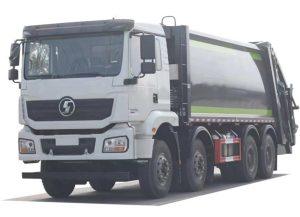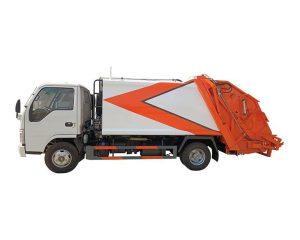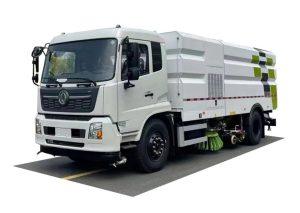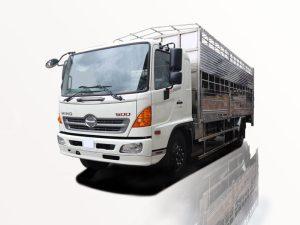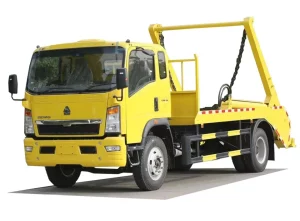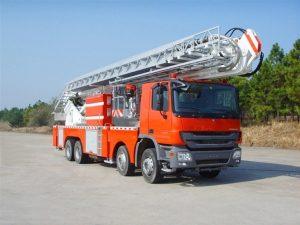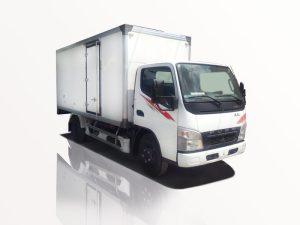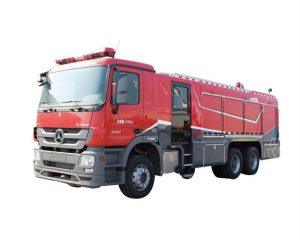Monday to Saturday - 8:00 -17:30
Understanding Waste Pump Trucks: Essential Equipment for Waste Management
Waste pump trucks play a crucial role in waste management and environmental protection. These specialized vehicles are designed for the safe and efficient transport of liquid waste, including sewage, sludge, and industrial by-products. This comprehensive guide will explore the various aspects of waste pump trucks, including their types, features, uses, maintenance, and best practices. By the end, you will have a solid understanding of how waste pump trucks function and their importance in waste management strategies.
What is a Waste Pump Truck?
A waste pump truck is a heavy-duty vehicle equipped with a powerful pump and vacuum system designed to extract and transport liquid waste. The waste can include anything from sewage and septic waste to industrial slurry. These trucks are essential for municipalities, construction sites, and industries where liquid waste needs to be managed efficiently.
Types of Waste Pump Trucks
Waste pump trucks come in various configurations to meet different requirements. Below are some common types:
1. Vacuum Trucks
Vacuum trucks are equipped with a vacuum system that creates negative pressure to suck up liquid waste. They are ideal for septic tank pumping, grease trap cleaning, and industrial waste removal.
2. Combination Trucks
These trucks combine both vacuum and jetting capabilities. They can suck up waste materials and also flush pipelines to clear blockages. Combination trucks are popular in municipal applications for sewer cleaning.
3. Sludge Trucks
Sludge trucks are specialized for transporting thick, viscous materials such as sewage sludge from wastewater treatment plants. They often feature heated tanks to keep the sludge pumpable.
4. Portable Restroom Service Trucks
These trucks are specifically designed for the transport and service of portable toilets at events and construction sites. They usually have specialized tanks and pumps to handle waste efficiently.
Key Features of Waste Pump Trucks
Understanding the vital features of waste pump trucks can help you choose the right model for your needs. Here are the essential elements to consider:
Pumping Capacity
The pump capacity is a crucial factor as it determines how much waste can be processed in a given time. High-capacity pumps can quickly remove waste from large jobs, reducing downtime.
Tank Size and Material
Waste pump trucks come with tanks of various sizes, typically ranging from 1,000 to 5,000 gallons. The tank material can also vary; most are made from aluminum or steel for durability.
| Tank Material | Pros | Cons |
|—————|—————————-|—————————-|
| Aluminum | Lightweight, corrosion-resistant | More expensive than steel |
| Steel | Cost-effective, durable | Heavier, prone to rust |
Pump Type
There are two main types of pumps used in waste pump trucks: positive displacement pumps and centrifugal pumps. Positive displacement pumps are better for thick liquids, while centrifugal pumps are more efficient for watery waste.
Filtration Systems
Quality waste pump trucks may come fitted with filtration systems to remove solids before waste enters the tank. This helps to protect the pump and extend the truck’s service life.
Common Uses of Waste Pump Trucks
Waste pump trucks serve multiple industries and applications. Below are some of the most common uses:
1. Municipal Waste Management
Municipalities utilize waste pump trucks for routine sewage pumping, waste collection from public toilets, and emergency spills cleanup. They are vital for maintaining public health.
2. Construction Sites
On construction sites, these trucks are employed to manage wastewater from construction activities or portable restrooms, ensuring compliance with environmental regulations.
3. Industrial Applications
Industries often generate liquid waste requiring effective disposal. Waste pump trucks assist in transporting hazardous and non-hazardous waste safely to treatment facilities.
4. Septic Tank Services
Septic service companies use vacuum trucks to pump out residential septic systems regularly, preventing clogs and maintaining optimal performance.
Choosing the Right Waste Pump Truck
Selecting the right waste pump truck can be a daunting task due to the various options available. Here are some tips to help you make an informed decision:
Determine Your Needs
Consider the type and volume of waste you will be handling. This will help you choose the most suitable truck with appropriate pump capacity and tank size.
Evaluate Features
Look for trucks with advanced features such as better filtration systems, efficient pump types, and durability. Always prioritize quality over cost to ensure long-term use.
Check Regulatory Compliance
Ensure that the truck complies with local environmental regulations and safety standards. This may vary by region, so it is crucial to be informed.
Maintenance of Waste Pump Trucks
Regular maintenance is vital to prolong the life of a waste pump truck. Here are some essential maintenance practices:
1. Clean the Tank
After each use, clean the tank to prevent odor and residue buildup. You can use water and a disinfectant for an effective clean.
2. Inspect the Pump
Regularly check the pump for blockages and wear. Replace worn parts immediately to avoid pump failures.
3. Monitor Fluid Levels
Keep an eye on oil and fluid levels. Low levels can cause severe damage, affecting the truck’s performance.
Best Practices for Operating Waste Pump Trucks
To operate waste pump trucks effectively, consider the following best practices:
1. Safety First
Always wear personal protective equipment (PPE) such as gloves, goggles, and masks to ensure safety when handling waste.
2. Follow Operational Guidelines
Refer to the manufacturer’s manual for specific operational guidelines for your truck. Adhering to these can enhance safety and performance.
3. Avoid Overloading
Never exceed the truck’s weight capacity. Overloading can lead to accidents and equipment damage.
Frequently Asked Questions (FAQ)
1. What types of waste can a pump truck transport?
A pump truck can transport sewage, sludge, industrial waste, and other liquid waste types, depending on the truck’s specifications.
2. How often should a waste pump truck be serviced?
Regular servicing is recommended every 3 to 6 months, depending on usage. High-usage trucks may need more frequent checks.
3. What is the average lifespan of a waste pump truck?
With proper maintenance, a waste pump truck can last anywhere from 10 to 15 years.
4. Are there regulations for operating waste pump trucks?
Yes, operators must comply with local environmental and safety regulations, which can vary by region.
5. Can I rent a waste pump truck instead of buying?
Yes, many companies offer rental options for waste pump trucks, which can be more cost-effective for temporary needs.
6. How do I choose a service provider for waste pump truck services?
Look for providers with a good reputation, proper certifications, and experience in the specific type of waste management you need.


